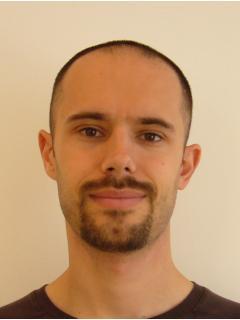Monday, January 14, 2008
Interview with Christophe Louvion, Gorilla Nation

Los Angeles-based Gorilla Nation (www.gorillanation.com) recently scored $50M in funding from Great Hill for the firm's online advertising services. The company provides online advertising representation to publishers, and often represents brand advertisers. The company recently hired Christophe Louvion, one of the earliest employees at Shopzilla, as its CTO, and we caught up with Christophe to get some insights into Gorilla Nation. Christophe spoke with Ben Kuo.
For our readers who aren't familiar with your firm, what is Gorilla Nation?

Christophe Louvion: We bring publishers and advertisers together in the mid-tail section of the market. On one side, you have big sites like Yahoo and MSN. They have a huge audience, but a very loose connection with advertisers. They just get volume, but don't know what they are buying. On the other side of the spectrum, are very small, very niche sites who don't have volume. We take the mid-market, and provide a very high volume of page views and ad space, while providing a very targeted audience, and a very good return on advertising.
Online advertising seems to be a crowded space, what's different about your firm?
Christophe Louvion: I think it's crowded overall, but it's not all that crowded in our space. In the mid-tail, the value we bring is connecting advertisers to a very specific demographic. Through multiple web sites, you keep the same concept of a niche.
Can you give us some examples of the demographics you provide?
Christophe Louvion: Say you want to reach a male, 18-20 years old. We work with 600 web sites, representing something like 50 million unique views. Of those, we package and know those websites very well, because we have strong relationships with every one--so we can give you the twelve web sites that really match what you're looking for. We can put you on those twelve sites, and build a very personalized offering on that web site to tailor the branding to the aspect of what advertisers want to do. That allows us to have higher CPMs than the rest of the industry, which is attractive for us and for the publishers we work with, who can expect returns way greater than what they usually do with the large scale solutions, which are not personalized.
You were a very, very early engineer at Shopzilla, how long were you there?
Christophe Louvion: I was there for nine years. I came in as the second or third engineer, and built the company since then, and helped sell the company for nearly $600M two and a half years ago. I have been on most aspects of growing the technology at Shopzilla, with the B2B, data structure, massive scale, infrastructure, and everything. I had the experience of not only growing the company once, but twice--we survived the dot com bust and the second time we won and became the number one provider.
Why'd you decide to join Gorilla Nation, and what will you be doing as CTO?
Christophe Louvion: I like to think about the company as being early in hockey stick growth. There's lots of growth happening, and fast growth. When you look at the hockey stick, you need strong technology so that you don't need to hire thousands of people, and so you can still operate quickly and efficiently. I'm coming from Shopzilla.com, which is the biggest shopping search engine on the web, and will bring the same reliability and scale that I created at Shopzilla. I'm pretty much enabling the company to not slow down, because of the technology.
Having been at Shopzilla early, what advice would you give people--for example, what was your biggest mistake, and what would you do to avoid it?
Christophe Louvion: The biggest mistake we made, was to try to control the growth of the company by putting heavy standards and policies in place. Some people call this the waterfall model--heavy documentation, handoffs, gates, and signoffs. That was our biggest mistake. I don't know if it would have killed the company, but it was not helping the company to keep fast growth. We switched to the Agile process, and by learning how to do that today I'm an expert in the field. It's the one thing that enabled the company to succeed the way it did. I'm going to apply it at Gorilla Nation. It's been a proven technique for multiple companies, at least those that really do it seriously and believe in it, and let their teams really self-organize and own their products that focus on delivering business value.